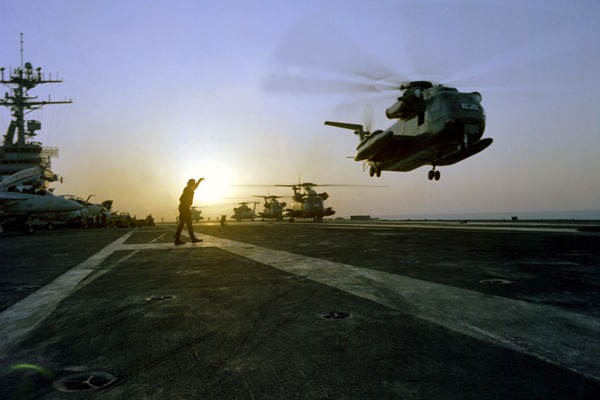
There’s a reason most Americans are familiar with the Iranian hostage crisis but less so with the failed 1980 rescue mission Operation Eagle Claw. It was, for all intents and purposes, a PR catastrophe where every conceivable military plan that could go wrong went horribly wrong, further depressing U.S. morale and presumably dooming President Jimmy Carter’s reelection chances. Desert One, a new documentary by Harlan County U.S.A. director Barbara Kopple, tries to dig a little further. Rather than simply cover the operation’s failure, she uses testimony from American—and Iranian figures—from the crisis to understand its broader impact and how those failures still haunt those involved.
Desert One feels like both a continuation and an inverse of the recent documentary Coup 53, which reveals how the United States replaced Iranian leader Mohammad Mosaddegh with the shah of Iran in 1953. If that film emphasized America’s narcissism at being able to destabilize other nations without fear, 1979’s student-led capture of 52 Americans at the U.S. Embassy in Tehran made the country feel uncharacteristically powerless. United under the rhetoric of Supreme Leader Ayatollah Khomeini, Iranians long viewed the Shah as an American puppet and saw him fleeing to the United States for safety as proof. The hostages were a bargaining chip for the shah’s return and, though he died in mid-1980, the political stalemate American endured heightened a sense of militaristic emasculation already made worse by the failures of Vietnam.
Kopple keeps her narrative pretty linear, though having the privilege to interview so many high-profile figures gives the account a lot of raw emotional depth. Carter and former Vice President Walter Mondale are the most notable faces, expressing regret and frustration that their diplomatic attempts met unyielding roadblocks. Other major subjects include the ex-hostages, soldiers involved with Operation Eagle Claw, former Iranian student revolutionaries, and even Nightline host Ted Koppel, whose show was directly created in response to the ongoing story. Each contributor breaks down the crisis’s escalation and, to a lesser extent, how oblivious Americans were to Iran’s anti-imperialist sentiments because of the close relations between the shah and the U.S. presidency.
The crux of the film is, of course, the failed rescue mission on April 24, 1980. In theory, a special operations force was to breach the U.S. Embassy under the cover of dark, grab the hostages, and fly out via six nearby helicopters before Khomeini could retaliate. Through a mix of interviews, audio clips between Carter and the military, and animated reconstructions, we’re treated to a step-by-step walk through of how everything fell apart at the Desert One meet-up site, which resulted in the deaths of eight servicemen.
It’s easy to empathize with the surviving soldiers, all of whom knew what was riding on this mission. Kopple paints them as honorable men who did what they could in the endeavor. Yet she also explores the opposite side of the conflict, in which Iran continually reveres this military failure as a divine triumph over American imperialism: the wreckage site is now home to a mosque and yearly celebrations. Some of the images shown, like the charred remains of the U.S. servicemen, are difficult to stomach, yet they’re ultimately part of a larger story that explores why Iran’s anger toward the West persists to this day.
Desert One is essentially the antithesis of Ben Affleck’s Argo. That film detailed the successful rescue of six U.S. diplomats through an absurdist real-life plan, while this examines a standard military rescue thwarted by the most random of worst case scenarios. But the desire to do good, to try and get Americans home safely, was always everyone’s primary motivation, with Carter revealing that reelection strategies were never going through his mind while trying to secure their release. By modern political standards, that’s uniquely selfless.
















Leave A Comment